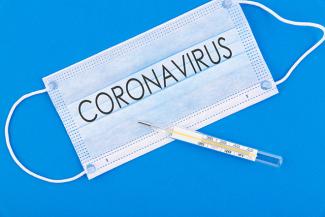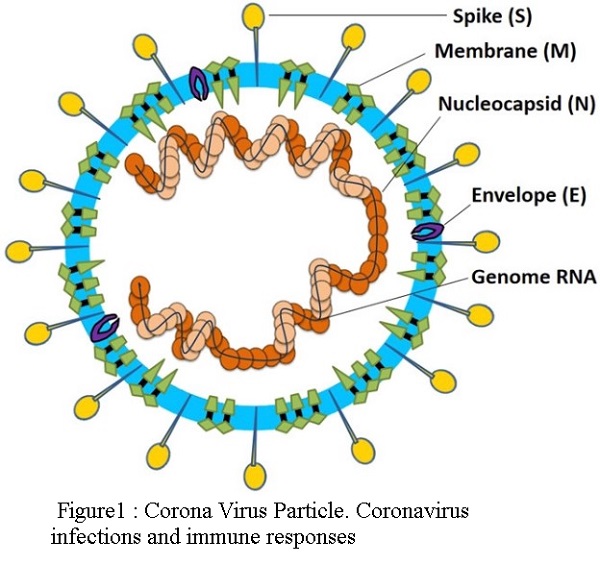
Elderly people and people with existing conditions are the most vulnerable and are at risk of getting infected with covid-19. Dr. Shital Raval on what precautions they can take can to keep themselves safe.
Every few years, we face an outbreak by viruses from the Coronaviridae family viz SARs in 2002, MERS-CoV in 2012 and now the 2019-nCoV. All of these have appeared sporadically, suddenly and spread swiftly. With no known treatment specifics or developed vaccine, they are a real threat to human life as researchers are still trying to understand the workings of the immune system against this virus.

As the world braces the pandemic of the Covid-19 virus, we all need to take necessary precautions against contracting this Corona flu. Although, (as of now) the mortality rates of Corona virus are lesser than SARS, it appears to be more contagious and the number of rising deaths across the globe cannot be ignored. Let’s look closely at people who are most vulnerable and at risk of getting infected and what precautions they can take can to keep themselves safe.
Who is at risk?
- Adults over the age of 70 years.
- Neonates especially premature babies.
- Persons with chronic conditions such as diabetes, lung/heart/liver or kidney diseases, cancer, HIV/AIDS etc.
- Individuals with low immunity such as people with anemia, on certain drugs like steroids or immunosuppressants, , the malnourished population, alcoholics etc.
- Cancer patients who are currently on active treatment (this includes surgery, chemotherapy, radiation, immunotherapy etc). According to the Medical Director of Seattle Cancer Care Alliance, “patients with blood malignancies such as non-Hodgkin lymphoma, chronic lymphocytic leukemia, acute myeloid leukemia, acute lymphoblastic leukemia and multiple myeloma are most at risk.”
- Patients who have recently had bone marrow transplants. This includes individuals with Thalassemia, Cancer, Immunodeficiency disorders etc.
If you fall under any of the above categories, make sure you take actions to reduce your risk of getting sick from the corona virus. Here are some of the preventive measures that can help you lower your risk of infection.
Daily Hygiene
Wash hands with soap for a minimum of 40-60 seconds.
Instead of handshakes, go with leg shakes or folded hands (namaste).
Carry your own mug to Office and College.
Wear a simple surgical mask if you are sneezing, coughing or have a runny nose.
Use disposable tissues instead of handkerchiefs. Dispose the tissue after each use.
Avoid sharing water bottles, drinking glasses, or cutlery with anyone.
Wipe your phone, backpack, purse and personal products with a sanitizer or anti-bacterial wet wipe daily.
If you have pets, make sure you wipe their paws and face after every walk.
Keep your surroundings and living space clean.
Places to avoid
All travel via trains, airplanes or buses.
All public transportation.
Crowded areas such as markets, malls, shopping locales, social gatherings, weddings, school events, concerts etc.
Even smaller enclosed areas like restaurants and movie/play theatres are avoidable.
Stay home as much as possible.
If feasible, work from home.
Stock up
On supply of medications that you take regularly including injections (insulin, anticoagulants etc.)
Basic cleaning supplies such as soaps, disinfectants, wet wipes, tissues etc.
Prophylactic Measures (on consult with your Doctor only)
Get your annual flu shot.
Talk to your doctor about reducing your immunosuppressant dose.
If you are undergoing Chemotherapy, inquire about boosting immunity with Immunoglubulins.
Patients with Lung Fibrosis must be updated on their flu and pneumococcal vaccines and evade all odds of even catching a minor cold.
For patients on Dialysis, continue your dialysis as scheduled.
If you have a chronic heart condition, remember to refrain from stress and panic.
How to keep your immune system strong?
Eat well. Opt for healthy and nutritious foods. Eat home cooked meals.
Sleep for a minimum of 7-8 hours daily.
Exercise daily for a minimum of 30 minutes. If you are able, do cardiovascular exercises.
Avoid smoking and exposure to second-hand smoke.
Stay calm. Stress is known to weaken the immune response.
Practice proper hygiene measures (mentioned above)
How to handle anxiety
If listening to or watching news about the widespread of the virus is causing you to become overly anxious and distressed, switch off the news and refrain from reading all messages and forwards on social media especially whatsapp. This is a time where rumours are circulating abundantly as well. For factual information, refer to accredited web sources such as the WHO or CDC website. If you feel that your anxiety or depression levels are rising, call your Mental Health Doctor or make an appointment to speak to your counselor. It is natural for fear and panic to affect us but if it is interfering with your daily life, do not hesitate to seek appropriate help.
|
If you have mild symptoms of a cold or flu, Do NOT PANIC! Keep your doctor informed and follow his advice. If you have Corona virus symptoms of high fever, fatigue, dry cough and/or difficulty breathing, then call your doctor immediately and self-quarantine yourself till further instructions. |
References:
Journal of Medical Virology. Geng Li et al. Coronavirus infections and immune responses. 25 Jan 2020. https://doi.org/10.1002/jmv.25685
Centers for Disease Control and Prevention. www.cdc.gov/coronavirus
Fred Hutchinson Cancer Research Center https://www.fredhutch.org/en/news/center-news/2020/03/coronavirus-what-cancer-patients-need-to-know.html





